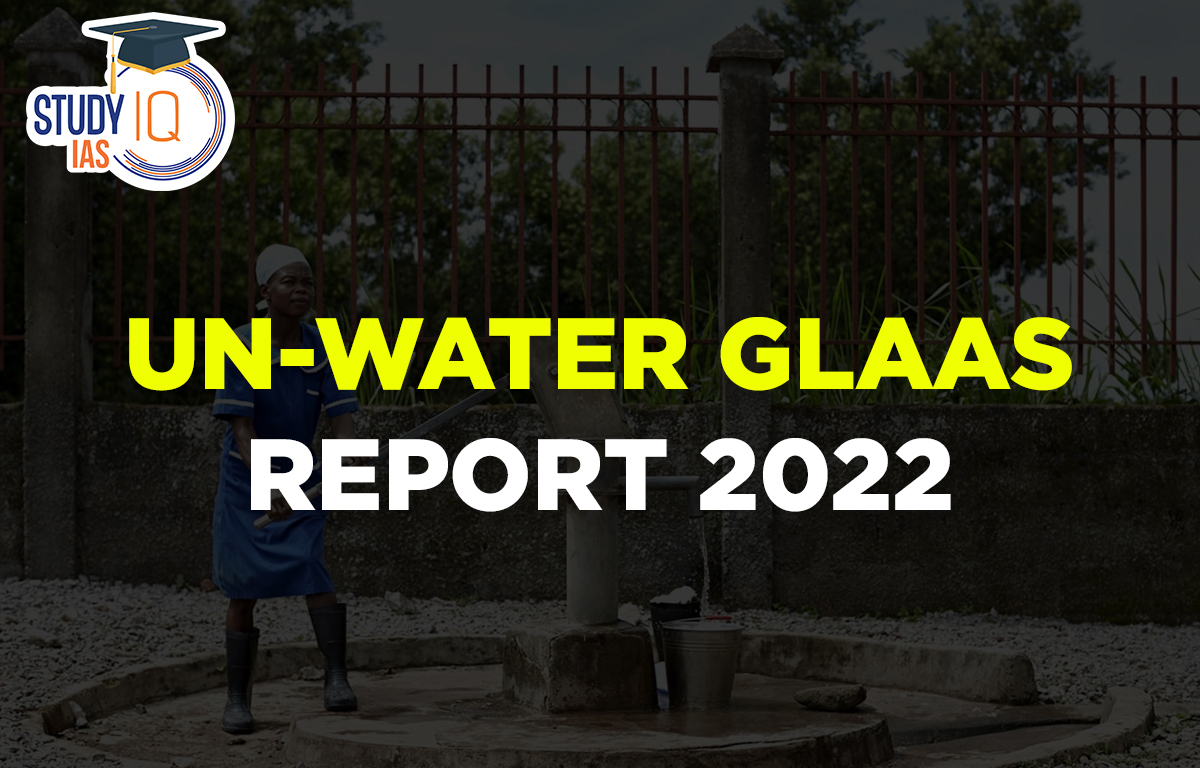Table of Contents
About the UN-Water GLAAS Report 2022
- The report compiles new data on water, sanitation and hygiene (WASH) from 121 countries and territories and 23 external support agencies.
- It serves as a global reference to inform commitments, priorities and actions during the second half of the 2030 Agenda for Sustainable Development and for the UN 2023 Water Conference.
- The report also highlights opportunities to accelerate progress in key WASH areas, pandemic preparedness and resilience to climate change.
Major Highlights of the Report
National Coverage Targets

Funding for WASH is Still Insufficient

- Human resources: Less than one third of countries reported they have more than 75% of the human resources needed to carry out key functions to deliver WASH services.
- Climate resilience of WASH systems:
- The increasing frequency and intensity of extreme weather events caused by climate change continue to hamper the delivery of safe WASH services, thus affecting the health of users.
- Despite the WHO identifying the climate change as the biggest health threat facing humanity, most WASH policies and plans do not address risks of climate change to WASH services.
Way forward
- Leaving no one behind: Governments must target underserved populations and settings – such as people living in poverty or in remote areas – to ensure they also have access to safe, sustainable WASH services.
- Community participation: Strengthening community participation is fundamental to adapt and sustain SDG 6 solutions to local community contexts.
- Gender inclusion: Increased inclusion, financial support and monitoring are needed to ensure women are considered in WASH decisions and services.
- Increasing Investment: Governments and development partners need to strengthen WASH systems and dramatically increase investment to achieve the targets of UN SDG 6.
About WASH
- WASH is an acronym that stands for the interrelated areas of Water, Sanitation and Hygiene.
- Significance: Safe WASH is not only a prerequisite to health, but contributes to livelihoods, school attendance and dignity and helps to create resilient communities living in healthy environments.
- The World Health Organization (WHO) WASH Strategy has been developed in response to the 2030 Agenda for Sustainable Development (SDG 3: Good Health and Well Being, SDG 6: Clean Water and Sanitation).
About UN-Water
- United Nations Water (UN-Water) is an interagency mechanism that coordinates the efforts of United Nations entities and international organizations working on water and sanitation issues.
- Headquarters: Geneva, Switzerland
- Important publications:
- United Nations World Water Development Report (The report is published by UNESCO on behalf of UN-Water).
- UN-Water Global Analysis and Assessment of Sanitation and Drinking-Water (GLAAS).


 UPSC Application Form 2026 Released on 4...
UPSC Application Form 2026 Released on 4...
 UPSC CSE 2026 New Rules: Complete Guide ...
UPSC CSE 2026 New Rules: Complete Guide ...
 UPSC Notification 2026 Out For 933 Post:...
UPSC Notification 2026 Out For 933 Post:...

























